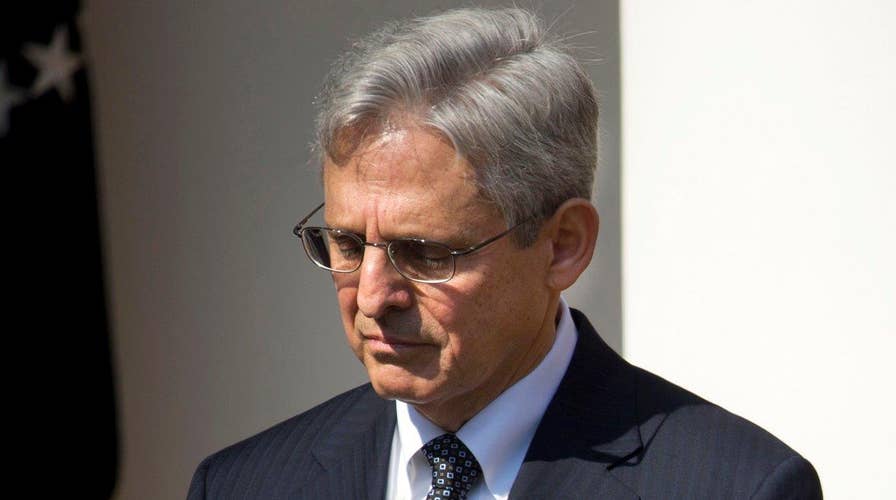GOP senators refuse to meet with Garland on Capitol Hill
Peter Doocy reports from Washington, D.C.
The appointment of a justice to the United States Supreme Court is one of the most important decisions a president can make while in office because of the repercussions such an appointment has on the legal landscape of our country into the future.
Already, President Obama has appointed two justices to the Supreme Court, and now is calling on the Senate to confirm Judge Merrick Garland, chief judge of the D.C. Circuit Court of Appeals, to the highest court in the land in the waning months of his presidency.
A resounding number of members of the House of Representatives and the United States Senate have expressed their desire to wait to fill the vacancy on the Supreme Court of the United States until the American people have been allowed to cast their opinion in November regarding who should be making this important appointment to the Court. How has President Obama responded to the American people?
Members of the Republican Party are not the only ones who have voiced concerns with confirming a successor to the Supreme Court during an election year. During a speech in 2007, Democrat Senator Chuck Schumer, D-NY, said, “[F]or the rest of this President's term and if there is another Republican elected with the same selection criteria let me say this: We should reverse the presumption of confirmation.” Even Vice-President Joe Biden opposed confirming a successor to the Supreme Court during an election year when he was a Senator from Delaware: “The Senate Judiciary Committee should seriously consider not scheduling confirmation hearings on the nomination until after the political campaign season is over."
Thankfully, the Framers of our Constitution created a system of checks and balances that only allows for nominees to the federal bench to be appointed “by the Advice and Consent of the Senate.” While it is well within the president’s power to make his nomination to the Court, the Senate has no duty to confirm that nominee.
While I believe the timing of the president’s nomination is questionable, I also have serious concerns about his nomination of Chief Judge Merrick Garland.
When Justice Scalia passed, he left a tremendous void in legal ideology and intellect that is almost impossible to fill. His more than thirty years on the bench shaped our nation’s legal landscape as he blazed a trail for textualism in statutory interpretation and originalism in constitutional interpretation, and called for judicial restraint on the part of the federal courts.
The nomination of Chief Judge Merrick Garland raises too many questions as to what type of jurist he would be on the bench for a tenure that could possibly last for decades. The American people need to know for sure that Chief Judge Merrick Garland would uphold the principles of the Constitution, and not be a justice who seeks to advance any type of ideological agenda while on the bench. The members of the United States Senate must know beyond a reasonable doubt that Judge Garland will adhere to the theory of judicial restraint, and respect the original meaning of the Constitution as prescribed by our Framers.
To ignore the advice of the members of the House and Senate and move forward with the confirmation of Judge Garland at this time would be robbing the American people of the chance to speak on where they believe this country should be headed. The choice to fill such an important position on the federal bench should be informed by the will of the American people. But the president has disregarded the voices of the American people during his last months in office.
As to the question of whether or not I agree with President Obama’s nominee to the Supreme Court at this time—I respectfully dissent.









































